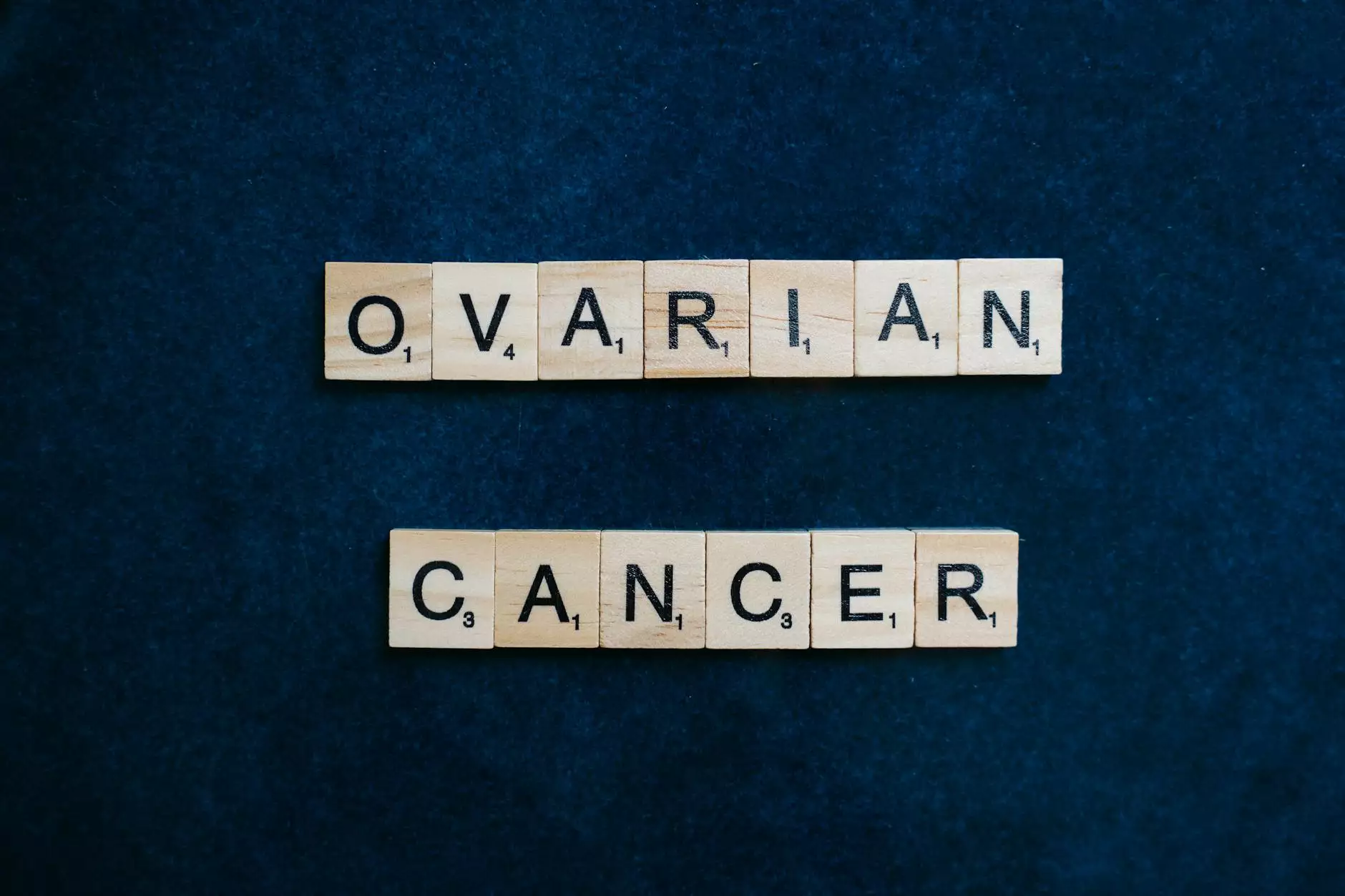Understanding the Risk of Ovarian Cancer After Hysterectomy: A Comprehensive Guide by Dr. Seckin

Hysterectomy remains one of the most common surgical procedures performed worldwide, with millions of women undergoing this operation for various benign and malignant conditions. While hysterectomy effectively treats many gynecological issues, questions about long-term risks, particularly the risk of ovarian cancer after hysterectomy, persist among patients and healthcare providers alike. Addressing these concerns is vital for informed decision-making, personalized care, and optimal health outcomes.
What Is a Hysterectomy and Why Is It Performed?
A hysterectomy involves the surgical removal of the uterus. Depending on the individual case, different types of hysterectomies may be performed, such as total hysterectomy (removal of uterus and cervix), subtotal hysterectomy (removal of the uterus only), or radical hysterectomy (removal of additional surrounding tissues). Common indications include abnormal uterine bleeding, fibroids, endometriosis, prolapse, or malignancies.
Understanding Ovarian Cancer and Its Risk Factors
Ovarian cancer is a significant health concern due to its often late diagnosis and aggressive nature. Its risk factors include age, family history, genetic mutations (such as BRCA1 and BRCA2), reproductive history, and certain lifestyle factors. Typically, the ovaries are a primary site for malignant transformations, making the role of surgical removal and its impact on subsequent cancer risk a critical subject.
Impact of Hysterectomy on Ovarian Function
Although the hysterectomy involves removing the uterus, the ovaries are often preserved, especially in cases where ovarian cancer risk isn't high. However, even when the ovaries are retained, their function can sometimes decline prematurely due to altered blood flow or surgical trauma. This potential decline influences the overall risk of developing ovarian cancer and informs decisions about prophylactic ovary removal.
Risk of Ovarian Cancer After Hysterectomy: What Does the Evidence Say?
Multiple studies suggest that the risk of ovarian cancer after hysterectomy can be reduced if the ovaries are removed at the time of surgery, particularly in women with significant genetic or familial risk. However, for women who preserve their ovaries, the risk does not vanish entirely but tends to decrease compared to the general population.
Research indicates that women who undergo hysterectomy with ovarian preservation have a slightly lower or comparable risk of ovarian cancer, but the risk isn't eliminated. The protective effect depends on factors like age at surgery, genetic predispositions, and hormonal status.
For example, a large-scale meta-analysis conducted by leading gynecologic oncologists revealed that preserving ovaries in women under 50 does not significantly increase the risk of ovarian cancer, especially when considering individual risk factors.
Factors That Influence the Risk of Ovarian Cancer Post-Hysterectomy
- Age at surgery: Younger women tend to have a different risk profile compared to older women.
- Genetic predispositions: BRCA mutations markedly increase risk and often lead to recommendations for prophylactic oophorectomy.
- Family history of ovarian or breast cancer: Increases the likelihood of malignancy.
- Type of hysterectomy performed: Whether ovaries are preserved or removed influences future risk.
- Hormonal factors: Changes in hormonal balance post-hysterectomy can impact ovarian health.
- Use of hormonal therapy: May modify risk levels over time.
Should Ovarian Removal Be Considered During Hysterectomy?
The decision to remove ovaries during hysterectomy—called bilateral salpingo-oophorectomy—is complex. For women at average risk, current guidelines suggest considering ovarian preservation, especially if they are under 50 and have no significant family history or genetic mutations. Conversely, women with increased genetic risk or personal history of ovarian cancer may benefit from prophylactic removal.
Dr. Seckin emphasizes that individualized risk assessment is crucial. Preoperative genetic counseling and thorough discussion of benefits versus risks lead to the best outcomes.
Detection and Prevention Strategies for Ovarian Cancer Post-Hysterectomy
Since ovarian cancer often presents with vague symptoms and is diagnosed late, proactive strategies are essential. These include:
- Regular screenings: Although routine screening for ovarian cancer is debated, pelvic examinations and transvaginal ultrasound may help in high-risk individuals.
- Genetic testing: Identifying BRCA mutations allows personalized risk management.
- Hormonal management: Maintaining hormonal balance might support ovarian health, though evidence varies.
- Lifestyle modifications: Healthy diet, regular exercise, and avoiding carcinogens can contribute to overall risk reduction.
- Patient education: Recognizing early symptoms such as bloating, pelvic pain, and urinary changes is vital for early detection.
Innovations and Future Directions in Managing Ovarian Cancer Risk
The future holds promising developments, including targeted therapies, improved genetic screening, and minimally invasive surgical options. Researchers are exploring ovarian tissue banking and regenerative approaches to restore ovarian function, potentially mitigating long-term cancer risks while preserving hormonal health.
Additionally, advancements in biomarker research aim to provide earlier detection methods, transforming outcomes for women at risk after hysterectomy.
Expert Advice from Dr. Seckin on Navigating Your Ovarian Cancer Risk
Dr. Seckin, a leading Obstetrician & Gynecologist with specialization in women’s health and reproductive medicine, recommends a personalized approach. Key points include:
- Discuss your medical and family history thoroughly with your healthcare provider.
- Consider genetic counseling if there is a family history of ovarian or breast cancer.
- Evaluate the risks and benefits of ovarian preservation versus removal during hysterectomy.
- Maintain regular follow-up appointments and screenings as advised.
- Stay informed about new research and emerging technologies in ovarian cancer prevention.
Ultimately, making an informed decision tailored to your health profile minimizes risk and promotes overall well-being.
Conclusion: Empowering Women Through Knowledge and Advances in Gynecologic Care
When it comes to understanding the risk of ovarian cancer after hysterectomy, knowledge truly empowers women to make choices aligned with their health goals and risk factors. As surgical techniques and scientific understanding continue to evolve, the focus remains on individualized care, early detection, and prevention. Consulting with experienced specialists like Dr. Seckin ensures that every woman receives expert guidance suited to her unique health profile.
Remember, proactive health management, ongoing education, and personalized medical strategies can significantly impact long-term outcomes for women post-hysterectomy. Stay informed, consult your healthcare provider regularly, and prioritize your health at every stage.









